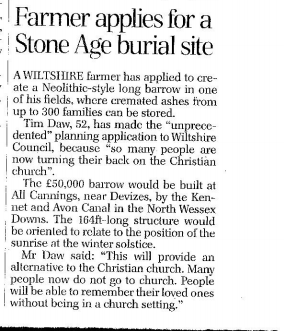Posted by Richard Rawlinson
There aren’t many taboos left but what I’m about to say somehow feels like a confession: I’m among the 2.5 million people in the UK aged between 45 and 64 who live alone, without spouse, partner or family member. Whether due to relationship breakdowns or genuine life choice, this figure for middle-aged single occupant households is growing. And yet mid-life singletons are often stigmatised as ‘on the shelf’ because they’re a bit odd.
We oddballs already account for a third of the 7.6 million total of home-aloners, which includes the over 65s, who may have lost cohabitees to death, and the under 45s, who may not have yet found (and lost) their home sharer. Whatever the circumstances, almost one third of the UK’s 26 million households are now single occupiers.
In dark moments, I’ve wondered what would happen if I fell down the stairs and broke my neck after I’d just started a week off work, and the cleaner wasn’t due for several days. The office would only send out a search party if I was absent without leave. Friends and family, however, are quite used to me not replying to calls, texts or emails immediately, naturally assuming I’m simply busy elsewhere rather than dead on the hall floor.
The same might be true of someone ringing the doorbell, or the barrista who chats each morning when handing me my double espresso. If I failed to turn up to a social engagement after said fatal fall, I like to think those I was due to meet would view my no-show as suspicious rather than rudeness or absent-mindedness as I’m usually reliable. But what if my diary happened to be blank for several days?
The worst case scenario is a nasty shock for the cleaner, and the unpleasantness of a rotting corpse for those involved in the process of seeing me to my grave.
Then there are the funeral arrangements. You’re perhaps more likely to discuss ceremonial preferences with co-habiting partners than with less immediate friends or relatives. And even if you’ve had the foresight to write down these preferences, partners are perhaps the most likely to know where to find such a document.
But I don’t want to digress here into discussion about the wisdom of notifying loved ones, solicitors and priests (or whoever) about funeral arrangements. This musing is about the growing number of home-aloners, which, in my experience, is about introversion increasingly becoming a life choice.
There’s been a major reappraisal of the introvert/extrovert definition recently. A fine example is Sophie Dembling’s book, The Introvert’s Way: Living a Quiet Life in a Noisy World.
Here’s a summary of her take on introverts, who might be neither shy nor loners and who may even want an ‘extrovert’ funeral (a very poor attempt to stay on message!).
Introverts alternate between phases of work, solitude and periods of social activity. At work, they can be confident public speakers even if not enjoying chitchat in large social groups. Performers like Lady Gaga, and an estimated 40 per cent of CEOs identify as introverts. At the same time, writers like JK Rowling are drawn to the solitary, creative activity of translating thoughts to words on a screen.
In solitude, introverts are less prone to boredom than extroverts, who need more external stimuli. Unproductive downtime is a blessing, allowing introverts to recharge their batteries. They tend to get tired and unresponsive after being out and about for too long. Fascinatingly, a Japanese study revealed introverts have lower blood pressure than extroverts and so their bodies need to conserve energy.
Socially, introverts may dislike small talk but this isn’t the same as a dislike of people. Small talk can create a barrier between people. Introverts can be deemed intense at social gatherings due to their penchant for philosophical conversations and thought-provoking discussion of books and films.
They’re more likely to go to parties to spend time with people they know rather than to meet new people. If they meet new people, fine, but that’s rarely the goal. They also screen calls, even from friends, calling them back only when mentally prepared and having gathered the energy for the conversation. ‘I like having a long phone call with a friend as long as it’s not jumping out of the sky at me,’ says Dembling. ‘To me, a ringing phone is like having somebody jump out of a closet and go ‘BOO!’.
As I ignore a call while sitting at my laptop, I empathise. But what if it’s an emergency? Better check the message, just in case.

